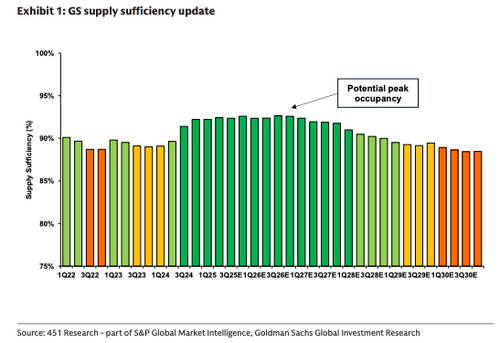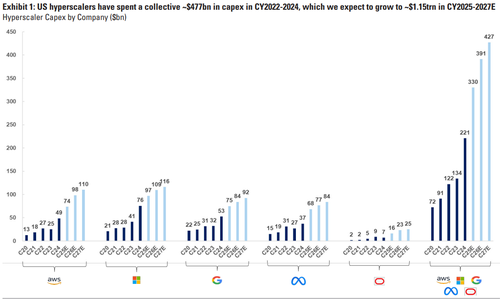$500 Billion & Counting: Next Chapter In Microsoft-OpenAI Partnership Revealed
Microsoft and OpenAI signed a new, long-term, definitive agreement that opens the next chapter of their partnership, advancing their “vision to advance artificial intelligence responsibly” and “make its benefits broadly accessible.”
Under the new agreement, OpenAI’s recapitalization and formation of a public benefit corporation (PBC) means that Microsoft now holds a 27% stake, down from 32.5% in previous funding rounds. This stake is now valued at $135 billion.
“The agreement preserves key elements that have fueled this successful partnership – meaning OpenAI remains Microsoft’s frontier model partner and Microsoft continues to have exclusive IP rights and Azure API exclusivity until Artificial General Intelligence (AGI),” Microsoft wrote in a press release.
OpenAI plans to purchase an additional $250 billion in Azure services. Microsoft will have access to OpenAI’s models until 2032. However, the new agreement shows that Microsoft loses its exclusive right of first refusal as the compute provider for the chatbot-maker.
Microsoft outlines the new framework governing its partnership with OpenAI:
-
Once AGI is declared by OpenAI, that declaration will now be verified by an independent expert panel.
-
Microsoft’s IP rights for both models and products are extended through 2032 and now include models post-AGI, with appropriate safety guardrails.
-
Microsoft’s IP rights to research, defined as the confidential methods used in the development of models and systems, will remain until either the expert panel verifies AGI or through 2030, whichever is first. Research IP includes, for example, models intended for internal deployment or research only. Beyond that research IP does not include model architecture, model weights, inference code, finetuning code, and any IP related to data center hardware and software; and Microsoft retains these non-Research IP rights.
-
Microsoft’s IP rights now exclude OpenAI’s consumer hardware.
-
OpenAI can now jointly develop some products with third parties. API products developed with third parties will be exclusive to Azure. Non-API products may be served on any cloud provider.
-
Microsoft can now independently pursue AGI alone or in partnership with third parties.
-
If Microsoft uses OpenAI’s IP to develop AGI, prior to AGI being declared, the models will be subject to compute thresholds; those thresholds are significantly larger than the size of systems used to train leading models today. The revenue share agreement remains until the expert panel verifies AGI, though payments will be made over a longer period of time.
-
OpenAI has contracted to purchase an incremental $250B of Azure services, and Microsoft will no longer have a right of first refusal to be OpenAI’s compute provider.
-
OpenAI can now provide API access to US government national security customers, regardless of the cloud provider.
-
OpenAI is now able to release open weight models that meet requisite capability criteria.
Earlier.
ORACLE CEO: NOT CONCERNED ABOUT “AI BUBBLE”
well duh
— zerohedge (@zerohedge) October 28, 2025
However, according to The Information last week, Microsoft executives warned that OpenAI CEO Sam Altman’s AI infrastructure demands could create overcapacity risks in data centers. That report was followed by another that showed ChatGPT’s mobile app growth may already have peaked (read the report).
Also, Goldman’s James Schneider told clients, “The net impact of our model updates extends the duration of peak datacenter occupancy well into 2026 (from the end of 2025 previously). After this point, we forecast a modest, but gradual loosening of supply/demand balance in 2027…”
Don’t question the AI spending.
A recent CNBC report put OpenAI’s valuation at around $500 billion.
Tyler Durden
Tue, 10/28/2025 – 10:15ZeroHedge NewsRead More






 R1
R1
 T1
T1


